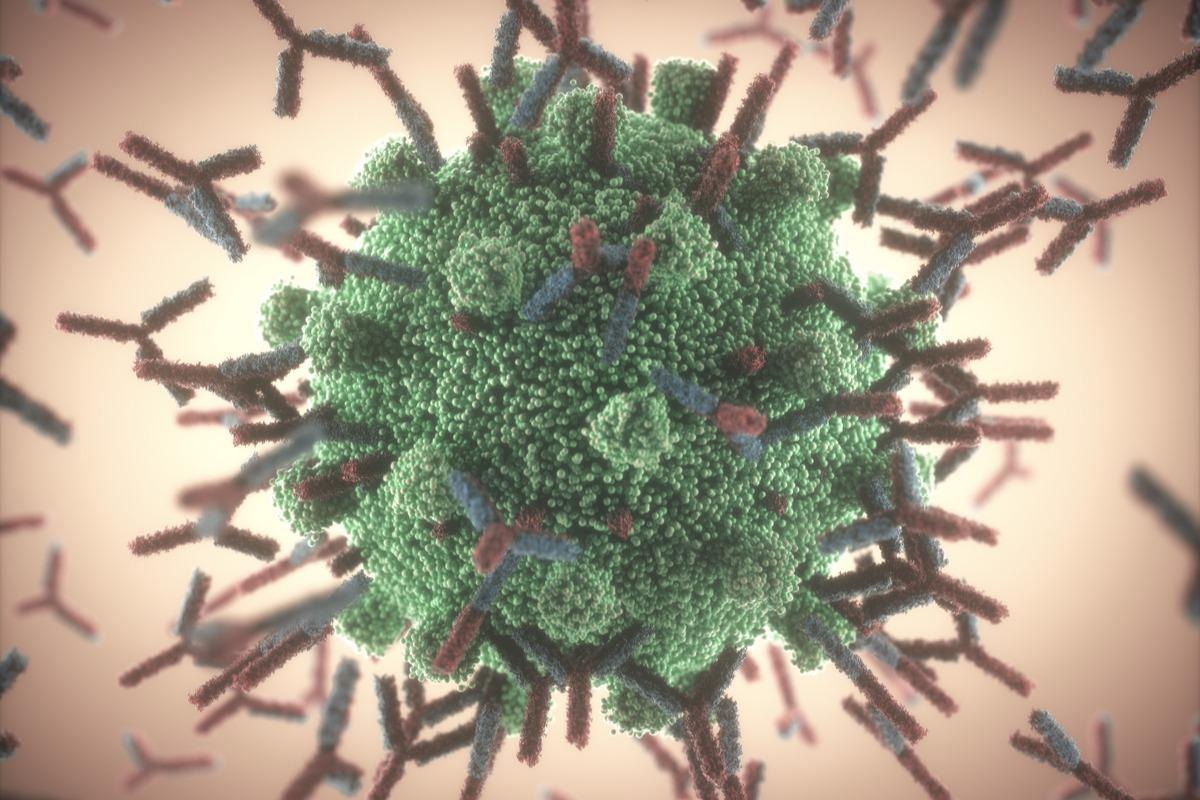Since the onset of the coronavirus disease 2019 (COVID-19) pandemic, caused by the rapid outbreak of severe acute respiratory syndrome coronavirus-2 (SARS-CoV-2), scientists have worked at an unprecedented speed to understand the different aspects of the virus. They developed several effective vaccines that have significantly reduced severe infection rates and deaths due to SARS-CoV-2 infection.
 Study: Evidence for Aerosol Transfer of SARS-CoV2-specific Humoral Immunity. Image Credit: ktsdesign/Shutterstock
Study: Evidence for Aerosol Transfer of SARS-CoV2-specific Humoral Immunity. Image Credit: ktsdesign/Shutterstock

 This news article was a review of a preliminary scientific report that had not undergone peer-review at the time of publication. Since its initial publication, the scientific report has now been peer reviewed and accepted for publication in a Scientific Journal. Links to the preliminary and peer-reviewed reports are available in the Sources section at the bottom of this article. View Sources
This news article was a review of a preliminary scientific report that had not undergone peer-review at the time of publication. Since its initial publication, the scientific report has now been peer reviewed and accepted for publication in a Scientific Journal. Links to the preliminary and peer-reviewed reports are available in the Sources section at the bottom of this article. View Sources
Background
Previous studies have indicated that high levels of antibodies (IgG and IgA) are present within the nasal cavity and saliva of vaccinees. These antibodies have been detected in both humans and primates inoculated with either mRNA or protein-based vaccines. Several studies have revealed respiratory transmission of viral infection. These reports emphasized that the oral/nasal cavity constituents can be transferred through aerosols and/or respiratory droplets. Furthermore, scientists also reasoned that antibodies present within the oral/nasal environment could be aerosolized to some degree. A very limited amount of evidence shows the transfer of constituents (e.g., antibodies) present within the nasal/oral cavities, other than infectious particles, between two individuals.
A new study
A new study published on the medRxiv* preprint server has addressed the previously mentioned research gap and has investigated the possibility of transfer of aerosol containing SARS-CoV-2-specific antibodies between vaccinated and non-immune hosts.
The authors of this study indicated that certain rules were implemented to restrict the transmission of SARS-CoV-2 infection, such as making the wearing of facemasks mandatory in both social and work environments, which presented a unique opportunity to determine the possibility of aerosolized antibody expiration from vaccinated individuals.
In this study, scientists applied a previously used method linked with the isolation of antibodies from rehydrated dried blood spots (DBS). They used this method to detect anti-SARS-CoV-2 specific antibodies eluted from surgical face masks worn by vaccinated lab members, which were donated at the end of one workday.
Key findings
The findings of this study are in line with previous reports that revealed the presence of both IgG and IgA in saliva from vaccinated individuals. Scientists have successfully identified IgG and IgA following the elution of antibodies from face masks. Owing to these observations, they hypothesized that droplet/aerosolized antibody transfer might occur between individuals, similar to the transfer of aerosolized virus particles from one individual to another.
To test the hypothesis, researchers performed a flow cytometry-based Multiplex Microsphere Immunoassay (MMIA) to detect SARS-CoV-2-specific antibodies in the serum samples obtained from first-responder adults in Arapahoe County, Colorado. Additionally, nasal swabs were collected from parents and their children at the Colorado Tricountry vaccine center in Aurora who were attending vaccine appointments, not limited to COVID-19 vaccination. Nasal swabs of children living in households where their family members possessed varying levels of SARS-CoV-2-specific immunity were collected.
Scientists readily detected the presence of SARS-CoV-2-specific IgG in the nasal swab samples acquired from children living in vaccinated households. Importantly, some of the nasal swabs obtained from children living in unvaccinated households revealed an absence of SARS-CoV-2-specific antibodies. Researchers compared the levels of SARS-CoV-2-specific IgG from the nasal swab samples obtained from both the groups of children, i.e., living in vaccinated or unvaccinated households.
In this study, the authors used the variation in parents’ levels of intranasal IgG as the basis of stratification across all children’s samples. They utilized data from thirty-four adult-child pairs and established antibody threshold values for high and low parental intranasal antibody levels. They reported high intranasal IgG levels in vaccinated parents, significantly associated with a 0.38 increase in the log-transformed intranasal IgG gMFIs, within a child from the same household.
Implications
The authors of this study suggested that aerosol transmission of antibodies could positively contribute to host protection against SARS-CoV-2 infection. The finding of the present study indicates the role of passive immune protection in protecting individuals from contracting the disease. Researchers stated that although the levels of antibody transfer required for host protection remain to be explored in the future, any amount of antibody transfer will benefit the recipient host.
According to a recent study, parental vaccination has substantially reduced the risk of COVID-19 infection in unvaccinated children present in the same household. The authors of the current study believe the above observation might be due to aerosol-mediated antibody transfer between vaccinated parents and unvaccinated children in the same household.

 This news article was a review of a preliminary scientific report that had not undergone peer-review at the time of publication. Since its initial publication, the scientific report has now been peer reviewed and accepted for publication in a Scientific Journal. Links to the preliminary and peer-reviewed reports are available in the Sources section at the bottom of this article. View Sources
This news article was a review of a preliminary scientific report that had not undergone peer-review at the time of publication. Since its initial publication, the scientific report has now been peer reviewed and accepted for publication in a Scientific Journal. Links to the preliminary and peer-reviewed reports are available in the Sources section at the bottom of this article. View Sources